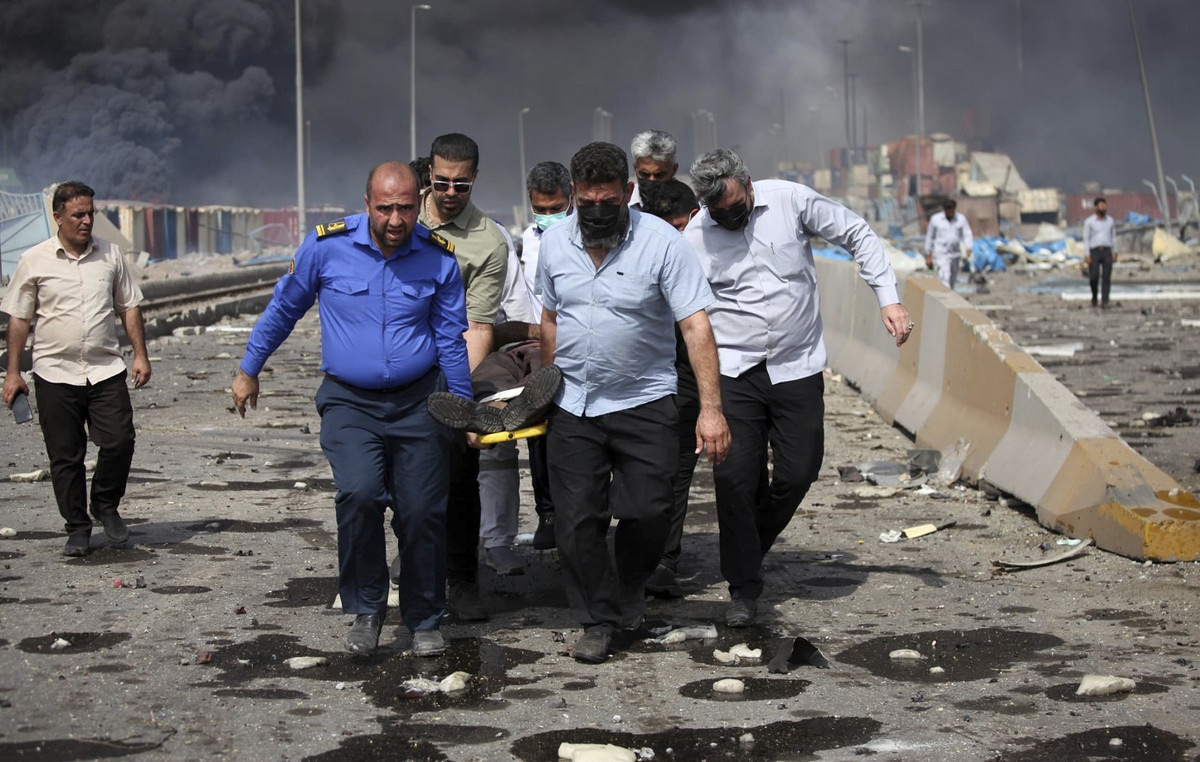The Minister of the Federal Supreme Court (STF) Luís Roberto Barroso upheld the conviction of the police officers involved in the deaths during the rebellion at the São Paulo House of Detention, 30 years ago, on October 2, 1992, which went down in history as the Carandiru Massacre.
The 73 police officers were convicted of killing 111 detainees in Carandiru, with sentences ranging from 48 to 624 years in prison.
Barroso denied the extraordinary appeal requested by the police officers’ lawyers, which contested a decision by the Fifth Panel of the Superior Court of Justice (STJ).
The Attorney General’s Office, through the opinion of the attorney Luiz Augusto Santos Lima, also opined against the appeal.
In the decision, Barroso rejected the defense’s argument that there was a violation of the principles of contradictory, full defense and due process of law.
The minister also specified in a series of points that there is no “general repercussion” to justify the appeal. The general repercussion is a procedural instrument that allows the Supreme Court to select which resources it will analyze, according to criteria of legal, political, social or economic relevance.
In 2021, a decision by the STJ served the Public Ministry of São Paulo (MP-SP) and reinstated the sentences of the police officers involved in the Massacre, after the 4th Criminal Chamber of the Jury Court annulled the trials.
The process has two lawyers appointed to defend the police. Celso Machado Vendramini represents 15 MPs, while Ieda Ribeiro de Souza represents another 49 MPs.
THE CNN contacted Vendramini’s law firm, which said it would not comment on the decision. THE CNN tries to contact Ribeiro de Souza.
Chamber discusses amnesty for convicted police officers
Barroso’s decision denying appeal to the police comes at the same time that a bill is being discussed in the Chamber of Deputies that provides for the amnesty of police officers convicted of involvement in the case.
Last Tuesday (2), the project was approved by the Chamber’s Committee on Public Security and Combating Organized Crime.
Approved in a symbolic vote in the collegiate, the text still needs to be analyzed by the Constitution and Justice Commission of the House and then by the Plenary.
In the report presented, Deputy Sergeant Fahur (PSD/PR) defended the actions of security agents, called them “heroes” and also stated that they should be “decorated for their bravery that requires courage that goes beyond common risks”.
Deputy Marcel Van Hattem (Novo/RS) twice tried to postpone the vote on the proposal, but there was no support from the other members of the commission. Van Hattem justified the request in the sense that there should be an analysis of each case and, depending on the situation, include those that are still being prosecuted. The MP abstained from voting.
Understand the case of the Carandiru Massacre
The police operation to suppress a rebellion in Pavilion 9 of the Carandiru Penitentiary, on October 2, 1992, left 111 inmates dead and became known as the Carandiru Massacre.
Six trials have taken place since then. In the first trial, in 2001, Colonel Ubiratan Guimarães, who commanded the operation, was sentenced to 632 years in prison for the death of 102 of the 111 prisoners in the penitentiary complex.

The other trials took place in 2013 and 2014. As it was a process that involved a large number of victims and defendants, the trial was divided into four parts and, at the end of which, 73 police officers were sentenced for the 111 deaths to sentences ranging from 48 to 624 years in prison.
The defense of the police decided to appeal to the Court of Justice of São Paulo (TJ-SP), asking for the annulment of the judgments and alleging that it would not be possible to individualize the conduct of the police, saying whether each one of them fired the shots or which police officers were responsible for the death of which victims.
On September 27, 2016, three judges of the 4th Criminal Chamber of the Jury Court, responsible for the defendants’ defense appeal, decided to annul the previous judgments, understanding that there are no elements to show which crimes were committed by each of the agents.
The Public Ministry appealed the decision and the 4th Criminal Chamber maintained the annulment of the trials, determining a new trial. Then, the Superior Court of Justice (STJ) ordered the TJ to redo the judgment. In 2018, the 4th Criminal Chamber of the São Paulo Court of Justice (TJ-SP) maintained the annulment of the judgment in a new session.
In 2021, the STJ heard a special appeal from the Public Ministry of São Paulo (MPSP) and, in addition to reinstating the sentences, determined that the TJSP resumed the judgments of the appeals related to the convictions. The decision was signed Minister Joel Ilan Paciornik.
According to the STJ minister, the accusation was strengthened by the autopsy reports, by the testimonies of the victims who survived the massacre, by the testimonies of the case expert and the director of discipline at Carandiru, in addition to the investigation that was carried out by three magistrate judges.
* Gabrielle Varela of CNN contributed to this story
Source: CNN Brasil







